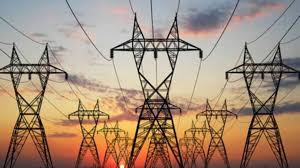The Zimbabwe Electricity Supply Authority (ZESA), which is struggling to meet local power demand, a development that has seen domestic consumers enduring over 18 hours of load shedding, has been given a green light to hike tariffs in order to remain viable.
The Zimbabwe Energy Regulatory Authority (ZERA) has approved an electricity tariff increase of ZWL162, 16c per kilowatt-hour following a recent application by ZESA to adjust the charge to promote the viability and better service delivery.
The Zimbabwe Electricity Transmission and Distribution Company (ZETDC), a ZESA subsidiary, had applied to increase the power tariffs from 38,61c/kWh arguing the previous rate had been overtaken by inflation and therefore compromising service delivery.
In approving the 319 percent increase in power tariffs, ZERA on Wednesday said: “The authority analysed the current situation characterised by about 18 hours of load shedding on most consumer groups, the high cost of alternative energy supplies, the deterioration of the tariff being charged against what is deemed cost-reflective and made the following approval:
“An average tariff at ZETDC level of ZWL162,16c/kWh effective October 3, 2019; revenue requirement of ZWL$2,916 billion for the period October to December 2019; electricity sales to consumers of 1,798,314,660kWh for the period October to December 2019.”
ZERA also went a step further and approved the application for an indexation formula beginning next month to enable the electricity company to recover from inflation and exchange rate changes.
The energy regulatory authority said it expected a significant improvement in electricity supply position from the Zimbabwe Power Company (ZPC), another ZESA subsidiary responsible for generating electricity.
It now remains to be seen if that will translate into the reduction of load-shedding hours.
“While we are not happy that the price of electricity has gone up, we expect an improvement in load-shedding now that we will be paying more,” said Thulani Dube, a Bulawayo resident.
He said long hours of power cuts were counterproductive.
Another domestic consumer of electricity, Cephas Mabvuta said he had mixed feelings on the tariffs hike.
“This is a serious issue considering that with ZW$100, you can only buy 24 kWh,” he said.
“I think I have mixed opinions on this one because the increase might mean improved service delivery but if there is no improvement then the utility is just worsening the burden on already suffering Zimbabweans.”
Consumer Council of Zimbabwe Matabeleland regional manager, Comfort Muchekeza said consumers were bearing the brunt of the ever rising cost of living.
He called for a multi-stakeholder approach in alleviating the people’s suffering.
Confederation of Zimbabwe Industries (CZI) president, Henry Ruzvidzo, told CITE they also expected power availability to significantly improve now that tariffs have been increased.
“As industry, we have always wanted power to be always available for us to be able to produce,” he said.
Ruzvidzo said given a chance they would want tariffs to be low, but now that they had been hiked they also expected better service.
Zimbabwe’s demand for power hovers around 2 000MW but owing to ageing equipment and the adverse effects of climatic conditions, existing power plants are generating far below the national requirement.

